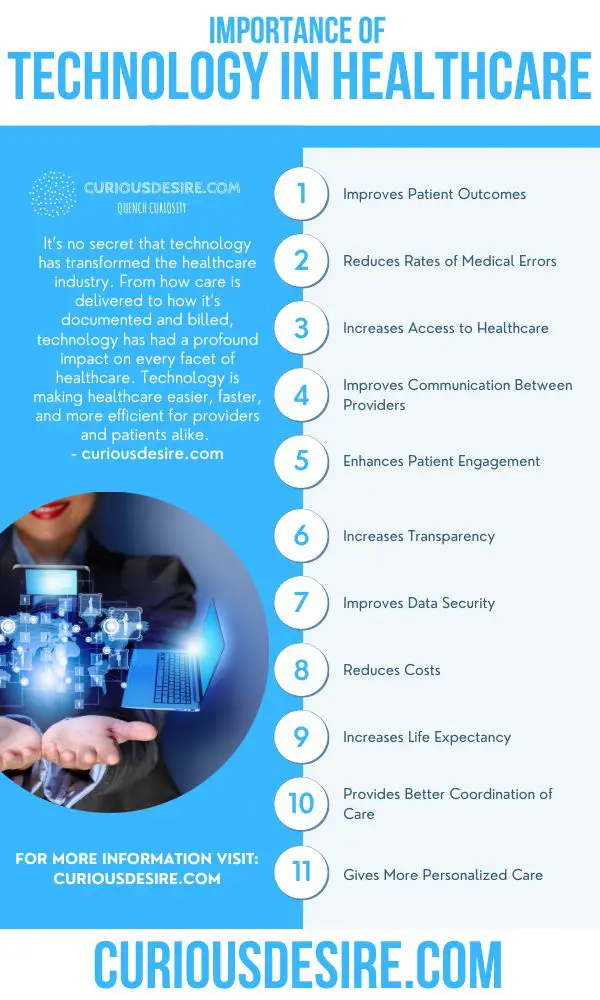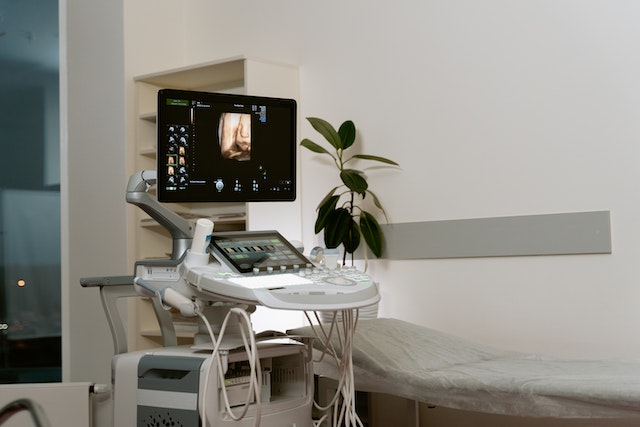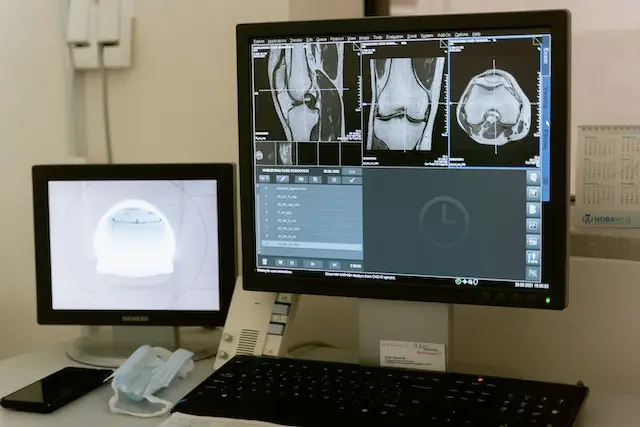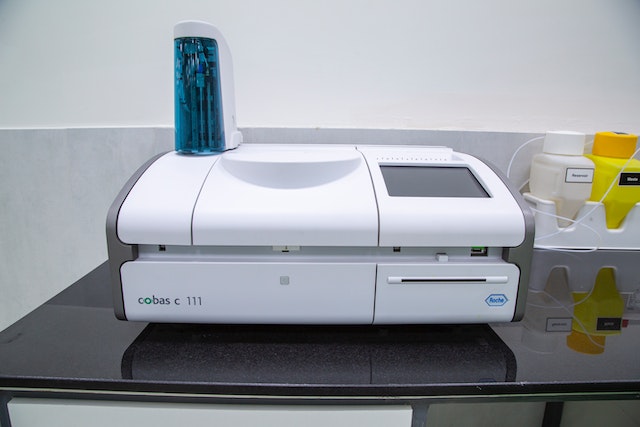It’s no secret that technology has transformed the healthcare industry. From how care is delivered to how it’s documented and billed, technology has had a profound impact on every facet of healthcare. Technology is making healthcare easier, faster, and more efficient for providers and patients alike. In this article, we’ll explore the importance of technology in healthcare.
15 Benefits of Technology in Healthcare
Technology in healthcare is a great way to improve patient outcomes, reduce costs, and streamline processes. Here are 15 reasons why technology is important in healthcare:
1. Technology in Healthcare Improves Patient Outcomes
Technology can help improve the accuracy of diagnoses, allowing medical staff to provide more precise treatments. Electronic Health Records (EHRs), for example, can provide a comprehensive record of a patient’s medical history, which can be used to make wiser decisions.
Due to technology, medical teams have access to imaging and other vital information as it’s needed, which can help them diagnose a condition more quickly. Otherwise, it could take longer for a doctor to properly diagnose and treat a condition.

2. It Reduces Rates of Medical Errors
Medical errors due to human error can be reduced with the help of technology. For instance, automated systems like robotics can automate tasks, reducing the chances of mistakes caused by fatigue or lack of concentration.
Additionally, electronic health records also help reduce errors by providing more accurate and comprehensive patient data. With this information, medical professionals can make informed decisions and avoid medical errors.
3. It Increases Access to Healthcare
Technology has made it easier for people in remote areas to get access to healthcare. Telemedicine, which is the use of technology to provide remote medical services, is a great way for patients who are not able to come into a physical healthcare facility to still access care.
Also, technology like mobile health apps has made it easier for patients to track their own health information and seek advice from medical professionals without having to leave the comfort of their homes.
4. Technology in Healthcare Increases Access to Care
Technology can help provide healthcare services to those in rural or remote areas that may not have easy access to healthcare. For example, telemedicine is becoming increasingly popular as a way for individuals in remote areas to receive medical care from professionals miles away.
Although there are some challenges that need to be addressed, such as broadband access and reimbursement rates, telemedicine has the potential to improve access to care for many people.
5. It Improves Communication Between Providers
Technology can help improve communication between healthcare providers, which is essential for coordinated care. Electronic health records give all members of a patient’s care team access to the same information so everyone is on the same page.
Additionally, there are many communication applications and platforms specifically designed for healthcare that allow providers to easily share information and collaborate.

6. Technology in Healthcare Enhances Patient Engagement
Technology can help patients become more engaged in their own care. For instance, patients can use apps to track their own health data and get reminders for appointments or to take medications.
Also, many healthcare providers are using telemedicine to provide care remotely, which can be beneficial for those who may not have access to traditional healthcare services.
Suggested Readings
Importance of Technology in Society
Importance of Technology in Education
7. It Improves Provider Efficiency
Technology can help streamline processes and reduce paperwork, so healthcare providers can focus on treating patients. Electronic health records, for example, allow providers to quickly access and update patient information in one place, eliminating the need for paper-based systems.
Also, robots or automation can be used to streamline tedious tasks like billing or prescription refills, freeing up healthcare providers’ time for more important tasks.
8. Technology in Healthcare Increases Transparency
Technology can help make the healthcare system more transparent by providing patients with access to their own health data. When patients have access to their own information, they can be more active participants in their care.
Also, technology can help improve communication between providers, so patients can better understand their diagnoses and treatment options. This can help build trust between providers and patients, leading to more positive outcomes.

9. It Improves Data Security
Technology can also help protect patient data from unauthorized access or malicious activity. Healthcare providers must be compliant with various regulations like HIPAA and PHI, and using secure technology is essential for compliance.
Hospitals and other healthcare organizations can utilize technologies like encryption and two-factor authentication to help protect patient information.
10. Technology in Healthcare Reduces Costs
Technology can help reduce the cost of healthcare by streamlining processes and improving efficiency. Automation can help eliminate errors that would otherwise be costly, as well as reduce the amount of time spent on mundane tasks for healthcare professionals.
Also, access to technology can help reduce the need for unnecessary tests or procedures and cut down on administrative costs. Ultimately, this can lead to lower healthcare costs overall.
Although healthcare costs are still a major concern in the U.S., they would be even higher without the cost-saving effects of technology. For example, electronic health records (EHRs) help reduce duplicate tests and procedures, while telemedicine allows patients to receive care from home instead of having to travel to a provider’s office.
11. Technology in Healthcare Increases Life Expectancy
The average life expectancy in the United States is now 78 years, which is a record high. A large part of this increase can be attributed to advances in medical technology that have allowed us to better treat deadly diseases.
With the help of technology, we can continue to improve the quality and length of life of people all over the world.
Suggested Readings
Importance of Technology In Our Life
Importance of Technology in Education Essay
Importance of Technology in Communication
12. It Improves Research Capabilities
Technology can also be used to aid in medical research. By collecting data from a large number of patients, researchers can more accurately identify trends and develop effective treatments.
Also, machine learning and artificial intelligence can be used to identify patterns in large datasets and aid in the development of new drugs or treatments.

13. It Provides Better Coordination of Care
Technology is playing an increasingly important role in coordinating care across different settings and providers. For example, hospital discharge planning software helps ensure that patients receive the follow-up care they need after being discharged from the hospital.
Through the use of technology, healthcare providers can collaborate more effectively and ensure that patients get the best possible care.
Suggested Readings
Importance of Technology in Business
14. It Gives More Personalized Care
Another goal of healthcare technology is to make care more personalized so that it’s tailored specifically to each individual patient’s needs and preferences. This is already being done in some areas, such as genetic testing and precision medicine.
With this type of technology, healthcare providers can more accurately diagnose and treat diseases based on an individual’s genetics or other characteristics. This can lead to better health outcomes for patients.
15. Technology in Healthcare Empowers Patient
In addition to giving patients greater access to their own health information, technology also empowers them by giving them more control over their own health. Through mobile health applications, patients can track their vitals, set medication reminders, and stay connected with their healthcare providers.
This level of engagement helps to create a more active and informed patient who is better equipped to make decisions about their own health.
Conclusion
Technology is playing a major role in improving the healthcare industry. From reducing costs and increasing patient access to improving care coordination and personalized care, technology has the potential to revolutionize healthcare as we know it.
By leveraging technology, we can ensure that everyone has access to high-quality, efficient healthcare. Ultimately, this will lead to better health outcomes and a healthier population.
Relevant Articles
Importance of Technology in Society
Importance of Technology in Education
Importance of Technology In Our Life
Importance of Technology in Education Essay